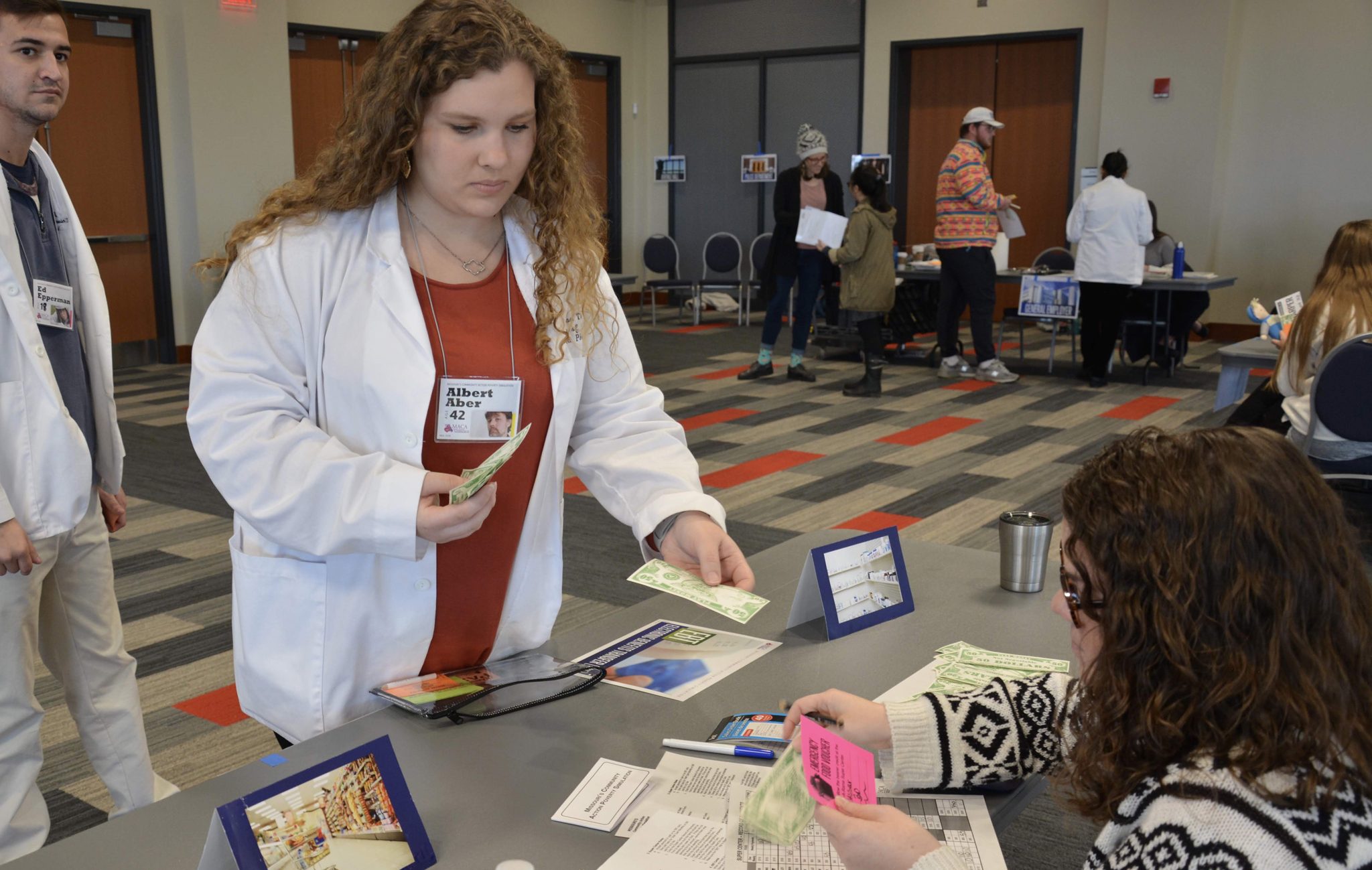
Students from the UM pharmacy, nursing, social work and nutrition programs navigate the daily stresses of low-income households as part of the Community Action Poverty Simulation. Submitted photo
OXFORD, Miss. – First-year student pharmacists at the University of Mississippi School of Pharmacy gained a new perspective after participating in a recent Community Action Poverty Simulation, a program that is part of the Missouri Community Action Network.
The simulation, which was held at the Ole Miss Student Union, taught students from pharmacy, nursing, social work and nutrition about the day-to-day realities of low-income households enrolled in the Temporary Assistance for Needy Families program, as well as disabled individuals receiving government assistance and senior citizens on Social Security.
Students navigated the many stresses of providing for themselves and others, while volunteers interacted with them as would grocers, job interviewers, bill collectors and other community members.
“This simulation not only teaches interprofessional competencies, but also gives students experience and, hopefully, an appreciation of the true impact of poverty on our patients,” said Kim Adcock, professor of pharmacy practice and one of organizers of the event.
“Poverty is a reality for many individuals and families, but unless you’ve experienced poverty, it’s difficult to truly understand.”
Erin Parker, community coordinator in the Department of Student Housing, has facilitated the poverty simulation for three years, overseeing anywhere from one to six events each year for students, professional organizations and staff members.
‘Parker believes the immersive experience is essential for helping future health care professionals recognize ways that poverty affects patients’ lives and decision-making so that they can build a culture of care in their own practice.
“I hope that students who participated in the simulation will research and be able to recognize resources to bridge the gap and assist their patients and clients to the fullest,” Parker said.
“Students walk away from this experience realizing that they can make a difference by further educating themselves about their community, volunteering their time and resources and enacting positive change through local legislation, organizations and their own actions.”